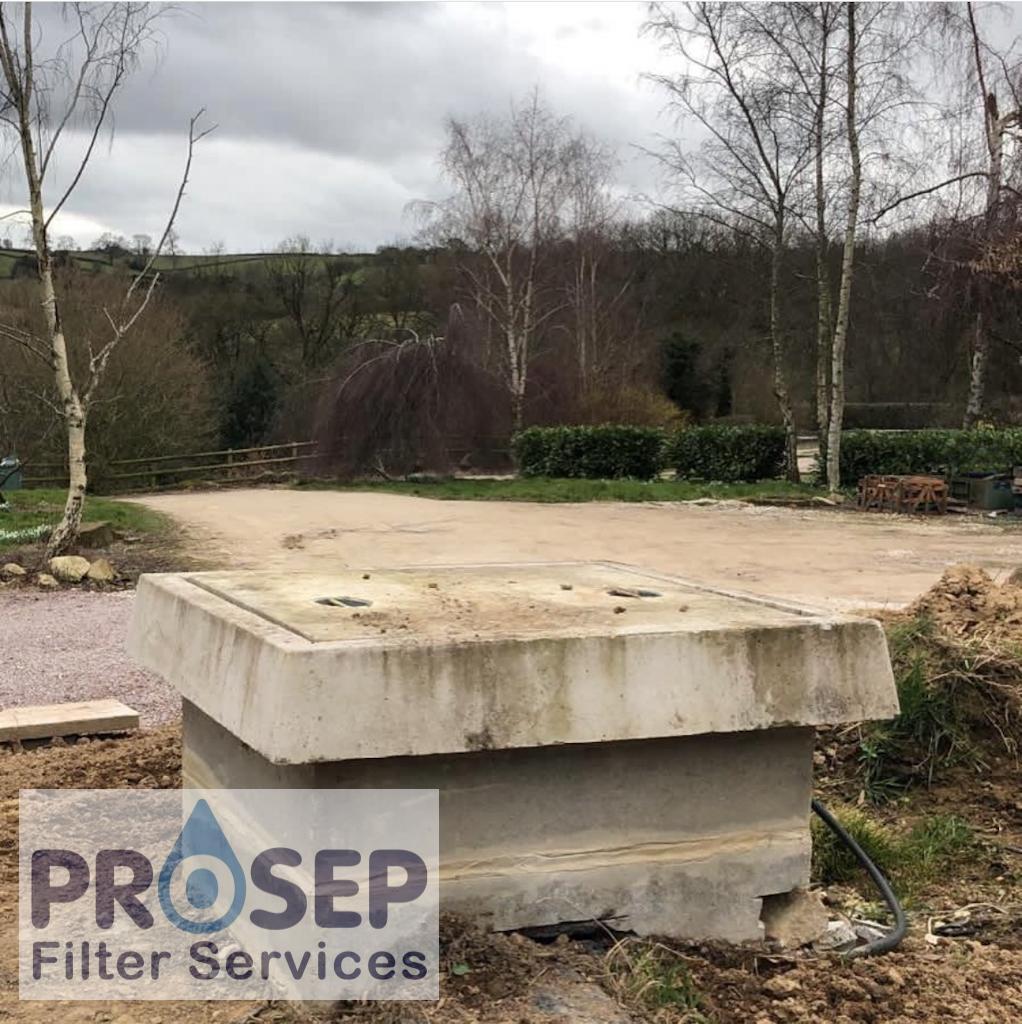What is a Borehole?
The simple terms a borehole is a hole drilled into the ground down to the water table in order to extract water. It may have to pass through several different layers of substrate before it meets the water table, the depth of the water table is variable for each location.
Borehole construction: –
For general domestic applications the borehole will be a 6” diameter hole, which is lined with a casing. The casing is a tube which is solid for most of its length, but then slotted or perforated at the lower level. The casing is grouted into position.
At the top of the casing is the well head. This is capped. The well head should be constructed such that there is no surface water ingress possible. This may be a brick construction with a watertight lid.
At the bottom of the borehole and linked to the surface by a pipe (the riser tube) is the borehole pump. This is a submersible pump that is suspended below the water level.
The pump will have a safety cord attached to it to prevent it being lost in the borehole should the riser ever give way. The riser tube passes through the cap on the well head and terminates in a fitting suitable for connecting to the water supply to the property. Often the pump will have a dry run cut off that shuts the pump down should the water supply drop below the pump inlet. The pump will burn out very quickly if allowed to run dry.
Problems encountered with a Borehole: –
Boreholes rarely give problems. Most problems reported are about the water that is drawn from them.
These are a few of the issues that we see: –
The borehole may run dry or the yield from the borehole may become reduced. This may be natural or it may be caused by third party disruption of the land which diverts the incoming water supply to the aquifer.
The quality of water from the borehole may naturally change from time to time.
Pump failure.
Casing collapse (usually very old boreholes).
Mineral build up.
Poor borehole maintenance.
Drinking Water from a Borehole: –
It is not often that we find a borehole supply that complies with statutory drinking water regulations straight from the ground. A new borehole should be run for as long as practically possible in order to flush out any drilling debris and to allow the aquifer to settle back to a state of equilibrium.
At this point the water should be tested to determine what deviations there are from the prescribed standards. For peace of mind, an accredited laboratory should be used both to determine the condition of the raw water and then the treated water after the filtration equipment.
How deep is a Borehole?
Simply put, it will be as deep as the water table. With the advice of a good hydro-geologist, the borehole will only be as deep as necessary, often this is between 40 to 70 meters.
What is the cost of a Borehole?
The cost is a great variable as it will depend on the depth of the borehole and the type of strata that has to be drilled through. The cost is often based on a time and depth calculation. A correctly constructed borehole will rarely cost less than several thousand pounds. You can expect to pay anything from £8k to £14k.
Can i share my Borehole with my neighbour/s?
Your borehole can be shared with multiple properties, and vice versa.
How long does a Borehole process take?
Every borehole has different characteristics. It’s dependent on the location, environment and drilling method.
Do I need a water storage tank?
Depending on your water usage and the amount of water available in your borehole, a water storage tank may or may not be necessary.
Can i drink boiled Borehole water?
Boiling borehole water will remove the microbial bacteria, however it will concentrate the mineral deposits such as sediment, lead and pesticides that may be present.
How much water can a Borehole produce per day?
Depending on the pump, a borehole can produce up to 20,000 litres a day. A licence is required if you draw more than 20,000 litres per day.
What should one know before drilling a Borehole?
You will not have to pay monthly/annual mains water bills.
Space will be required for the drilling process.
A room or shed will be needed if you have a water treatment system in place. This will require having electrics installed due to the treatment equipment.
Will my Borehole require a pump?
Pumps are usually needed to bring the borehole water to the surface. If the water is under pressure beneath the surface, it will create an artisan well.
Can Boreholes dry up?
Boreholes can sometimes dry up during a drought or after an extended period of warm, dry weather.
What type of drilling methods are used for a Borehole?
There are different methods of drilling, however the most common type of drilling is Rotary drilling.
Are we guaranteed to find water?
Geological investigations will be made before the drilling process to check where the water location is.

